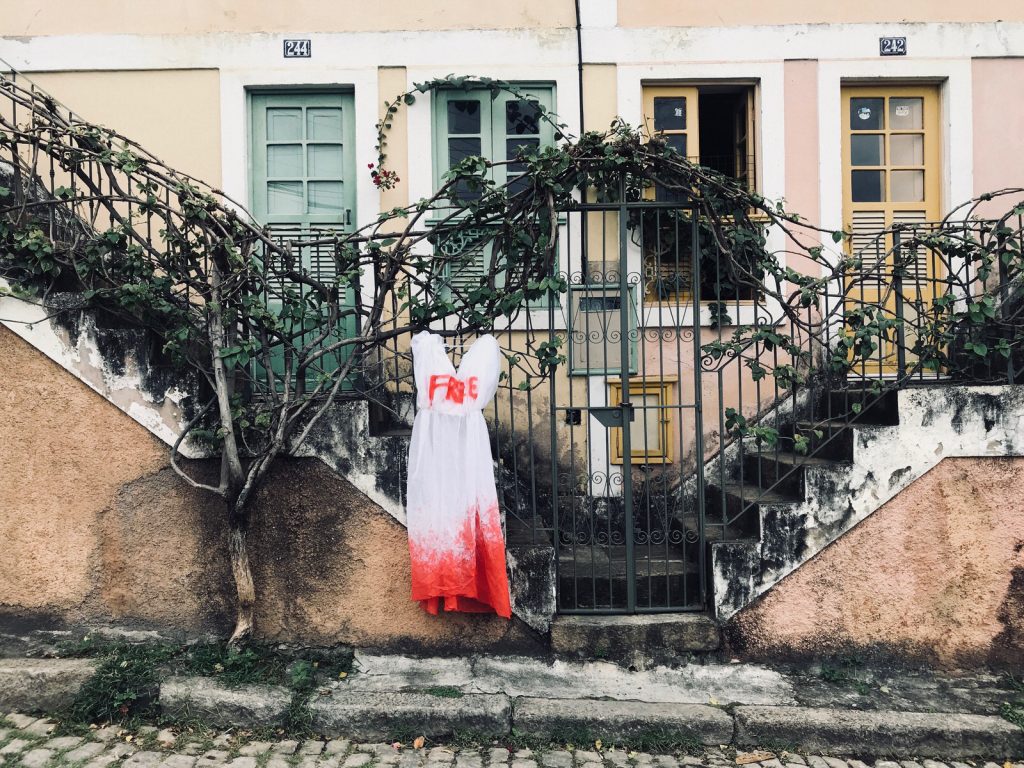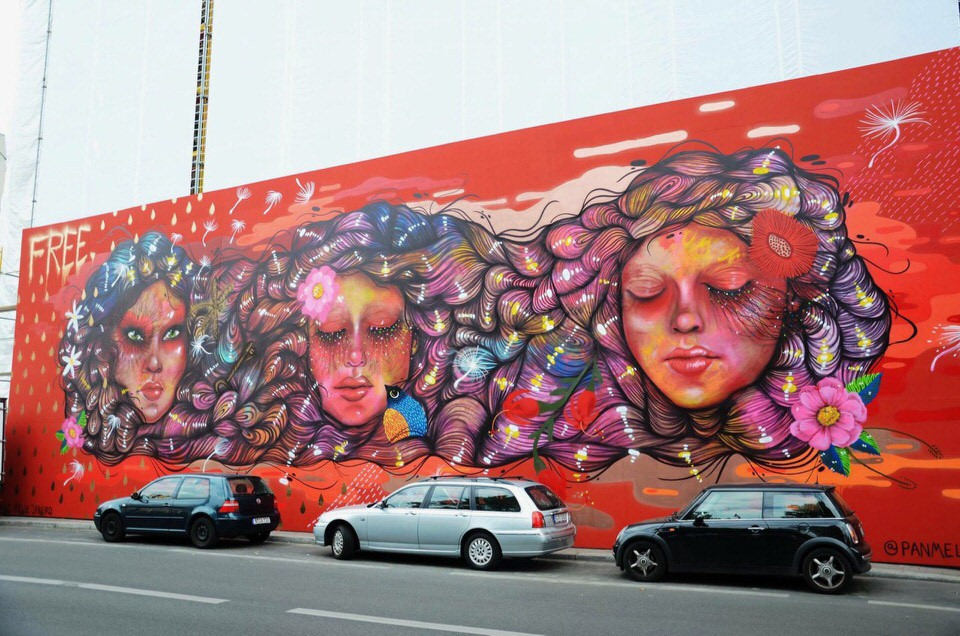Panmela Castro
Brazil
My art began as a revolt against social conditions such as poverty, racism and gender violence, daily problems in the poor neighborhoods of Rio where I was raised.
Bio
Panmela Castro was born in Rio de Janeiro, Brazil, in 1981, and studied art at the Federal and State universities in the city. With the alias Anarkia Boladona (a slang that means something like “Crazy Anarchy”) she became a star in the street art scene, with graffiti about gender violence and the role of women in Brazilian society.
She has worked with graffiti, street art, performances since 2006. Her art began as a revolt against social conditions such as poverty, racism and gender violence, daily problems in the poor neighborhoods of Rio where she was raised. Panmela Castro´s choice of graffiti as a mean of expression is linked to the spirit of transgression and the will to overcome these limitations.
Working in a country with a culture that is still very patriarchal, Panmela Castro often meets hostility from conservative forces in Brazil, due to her representation of gender and sexuality. These conflicts, and her own life experience, have inspired her to create a NGO dedicated to use art to fight against violence.
Full Artist Statement
In 2017 she painted the mural, Femme Maison for the Triennial Arts Frestas by curator Daniela Labra invitation. The mural is based on the artist’s paint that is part of the collection of the Urban National Museum in Berlin; it shows two female heads intertwined with a flower, which has been accused of representing a vagina, and became a scandal amongst the conservatives of the city. During 7 minutes, Pastor Luis Santos delivered a set of outdated criticisms against the artist (Panmela incorporated the video of the speech as her work) leading the public ministry to file a lawsuit against SESC Sorocaba, which was forced to remove the painting at the end of the Triennal. The case became known as one of the first episodes of the art censorship wave together with the case of the Queer Museum Exhibition and the performance “La Betê” at the Mordem Art Museum Of São Paulo.
The artist likes to say these unique experiences with the marginality of graffiti taught her more than art school ever did; that many of her perceptions of human rights came from this period when she experienced, physically and mentally, different kinds of violence.
Panmela Castro was raised as a “white girl” by her conservative lower middle-class family in a suburb of Rio de Janeiro. Her mother faced financial trouble and domestic violence with her first husband, she ran away and remarried a man who gave her a dignified life and raised Panmela as his legitimate daughter. With almost no formal education, her new father arranged for her to dedicate herself to her studies until, at the age of 15, Panmela was forced to work following her father’s bankruptcy. With her family destabilized, she abandoned her parents’ house and lived in one of the most dangerous slums in the city. To pay her bills and schooling, in addition to teaching, she began to draw people on the streets and sell the pieces for 1 Brazilian Real. It was also at that time that, using the alias Anarkia Boladona, she became the first girl of her generation to climb buildings to spray her tag. Panmela was one of the first graffiti writers to paint trains in Rio and she made illegally interventions all city.
In 2005, she began to dedicate herself to mural painting after a negative experience with domestic violence: she was beaten and kept in a private prison by her partner, and this experience definitely influenced the political nature of her works.
To bring about effective change in society, Panmela founded the Rede NAMI, an arts and human rights institution where, since 2010, has invested in more than 9,000 women and today is dedicated to black women who are the most affected by feminicide in the country.


